 Petzlover
Petzlover Atlas Terrier is originated from United States but Maltese is originated from Italy. Both Atlas Terrier and Maltese are having almost same height. Both Atlas Terrier and Maltese are having almost same weight. Both Atlas Terrier and Maltese has almost same life span. Atlas Terrier may have more litter size than Maltese. Both Atlas Terrier and Maltese requires Moderate Maintenance.
Atlas Terrier is originated from United States but Maltese is originated from Italy. Both Atlas Terrier and Maltese are having almost same height. Both Atlas Terrier and Maltese are having almost same weight. Both Atlas Terrier and Maltese has almost same life span. Atlas Terrier may have more litter size than Maltese. Both Atlas Terrier and Maltese requires Moderate Maintenance.
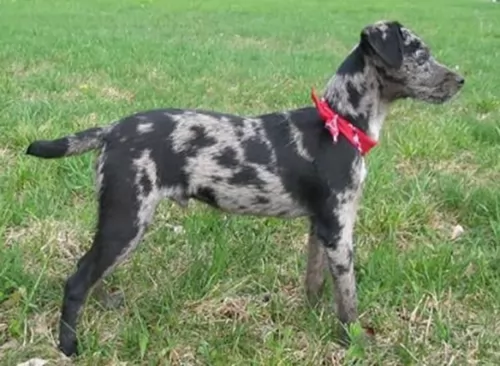 The Atlas Terrier is a rare dog. He was developed in the USA and is a blend of Jack Russell Terriers, Rat Terriers, Border Terriers and Patterdale Terriers. It was in 1990 that Lauren Wolfe developed a breed similar to the Jack Russell, but with a solid colour, and in fact she had two dogs that were solid red in colour. This was as a result of a cross between a Jack Russell Terrier and a Border Terrier.
The Atlas Terrier is a rare dog. He was developed in the USA and is a blend of Jack Russell Terriers, Rat Terriers, Border Terriers and Patterdale Terriers. It was in 1990 that Lauren Wolfe developed a breed similar to the Jack Russell, but with a solid colour, and in fact she had two dogs that were solid red in colour. This was as a result of a cross between a Jack Russell Terrier and a Border Terrier.
With the crossing of different terriers, the foundation for the Atlas Terrier was formed. Lauren Wolfe named the breed ‘Atlas Terrier’ because many terriers from various parts of the world were used to develop this specific breed. It was in 2001 that the Atlas Terrier Association was founded.
 The Maltese dog hardly needs any introduction as this is an ancient breed which is still as popular as ever. Some people refer to it as the "Maltese Lion Dog," or "Melita" which was Malta’s previous name.
The Maltese dog hardly needs any introduction as this is an ancient breed which is still as popular as ever. Some people refer to it as the "Maltese Lion Dog," or "Melita" which was Malta’s previous name.
It was in the 19th century, that the Kennel Club settled on the name of Maltese for the dog breed. The dog has been selectively bred to keep its small size. The exact origin of the dog is unknown and there are various stories surrounding where its origins are, thought to be Italy.
It is believed that dogs such as spaniels and poodles have been used to bring about the Maltese. The American Kennel Club, a registry for pure bred dogs, recognized the breed in 1888.
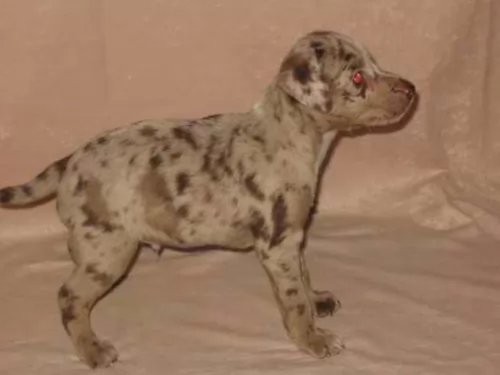 Atlas Terrier dogs are a small to medium sized dog but with a strong personality. With their two coat varieties – smooth and wire – and coming directly from the Jack Russell Terrier, this feisty dog suits those who want a low maintenance, fun breed who will join them on their walks or jogs. These dogs are brave and loyal and will double as a watch dog and family pet.The breed is accepted for registry and it is classified under the Terrier dog category.
Atlas Terrier dogs are a small to medium sized dog but with a strong personality. With their two coat varieties – smooth and wire – and coming directly from the Jack Russell Terrier, this feisty dog suits those who want a low maintenance, fun breed who will join them on their walks or jogs. These dogs are brave and loyal and will double as a watch dog and family pet.The breed is accepted for registry and it is classified under the Terrier dog category.
There are 3 sizes of Atlas Terrier – toy, miniature, and standard. The toy variety is 23 to 28 cm tall at the shoulder and weighs 2.7 to 5.4 kg. All three varieties are the same except for height and weight.
The coat of this dog is thick and may come in a variety of colours such as brindle or merle. The Atlas Terrier is also found in solid colours and sometimes you will find that they have white markings on the face, feet or chest. Most times the tail of the Atlas Terrier is docked, but if not, the tail curls over the back. The ears of the Atlas Terrier are V-shaped and they fold forward.
 The Maltese is looked upon as a toy dog. Both male and female stand roughly between 20-25cm in height and weigh between 1 and 4kg.
The Maltese is looked upon as a toy dog. Both male and female stand roughly between 20-25cm in height and weigh between 1 and 4kg.
He is as cute as a button with a rounded skull, a pitch black nose, brown eyes and medium length floppy ears. The tail is feathery and is curled. He has a long, silky coat without an undercoat.
The color of his coat is pure white, and because he doesn’t shed he is looked upon as being hypoallergenic. Most people who own a Maltese like having the coat short to one length all round.
These little dogs have been bred to be companion dogs. They may be little, but it is a good idea to have him trained and socialized as they are inclined to be a bit snappy, especially with children.
He is intelligent, so training him won’t be difficult. Brought up the right way though, he can be good with children as well as pets in the home. They love their human families and want to be constantly with them. He is an energetic little dog too, and will just love ball games both inside and outside.
His very temperament and smallness make it that he fits perfectly into life in the city or the countryside. He is sweet and gentle but he makes a good watchdog, alerting you with his barking to strangers coming close by. Don’t leave him for long period of time as he hates being on his own and then he may start barking from sheer boredom and frustration.
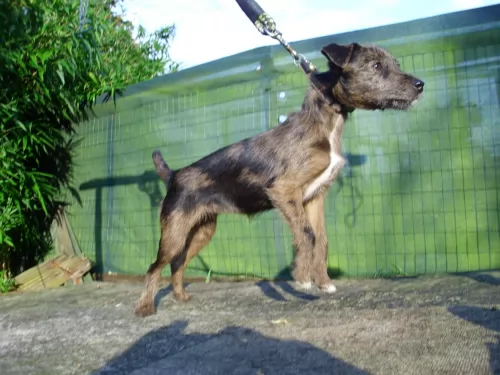 Atlas Terriers most certainly have a bit of the Jack Russell in them and these dogs are social, outgoing, mischievous and affectionate. They’re just like your regular naughty child and having one of them in your home will mean energy and lots of fun and games.
Atlas Terriers most certainly have a bit of the Jack Russell in them and these dogs are social, outgoing, mischievous and affectionate. They’re just like your regular naughty child and having one of them in your home will mean energy and lots of fun and games.
This is a highly social breed and he won’t like to be left alone every day. Just like a human child, he will need to be stimulated to ward off boredom and to prevent him from becoming destructive.
The Atlas Terrier just loves games and if you’re ready for a game, he will be more than ready to take part. He is intelligent and will therefore responds well to training and socialization. When properly socialized, Atlas Terriers get along well with children, and because they’re not an aggressive breed, if they’re properly trained and socialized they will get along with other pets too. Atlas Terriers make excellent pets, but he is a strong willed dog and will require an owner who is firm, but fair.
 The Maltese is a popular dog no doubt, and his smallness is a draw-card as he adapts easily to life in the city or the countryside.
The Maltese is a popular dog no doubt, and his smallness is a draw-card as he adapts easily to life in the city or the countryside.
He is loving, loyal, intelligent and responsive, making him a good family dog and being an excellent playmate for children. Teach your children how to respect animals because raucous, disrespectful kids might produce a nip from an agitated Maltese.
Being a light shedder is another draw-card, with him being looked upon as a hypoallergenic breed. He has got so many good things going for him that he is guaranteed to make you an ideal pet.
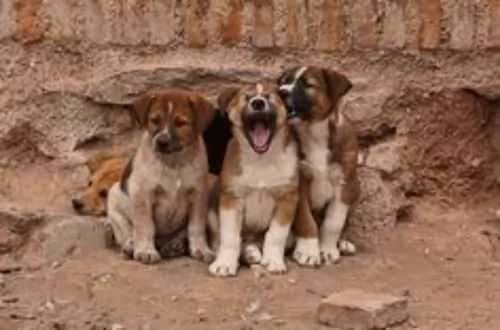 The selective breeding program of Atlas Terriers has meant that this is a robust, spunky breed free of any major health concerns. While they are a low maintenance breed with longevity on their side, you still have to be a responsible pet owner and see that your Atlas Terrier puppy gets all those must have injections.
The selective breeding program of Atlas Terriers has meant that this is a robust, spunky breed free of any major health concerns. While they are a low maintenance breed with longevity on their side, you still have to be a responsible pet owner and see that your Atlas Terrier puppy gets all those must have injections.
Tiny puppies are susceptible to infectious diseases and will have to be vaccinated against them from 8 weeks on and then also get an annual booster. The diseases to be vaccinated against include hepatitis, distemper, parvovirus, coronavirus, eptospirosis and parainfluenza. Vaccinations must be kept up to date and it is mandatory for your puppy to be vaccinated against rabies.
 Your Maltese is a feisty little thing who, with good care, can live for a good few years – up to 15 or even longer. As with any other dog, he can become ill. One or two illnesses to look out for include -
Your Maltese is a feisty little thing who, with good care, can live for a good few years – up to 15 or even longer. As with any other dog, he can become ill. One or two illnesses to look out for include -
Sebaceous adenitis is caused by inflammation of the sebaceous glands and is an uncommon skin disease found in some breeds of dog.
There are two types - one for long coated breeds and one for short coated breeds. For long or double-coated dogs, you’ll notice a white/silvery kind of dandruff on the coat as well as hair loss. There can also be skin lesions along the back and ears. It can make your pet miserable and he will need to see a vet.
A common hormonal problem is canine hypothyroidism, brought on by inadequate levels of thyroid hormones. Symptoms include hair loss, weight gain, coldness and a weakened immune system.
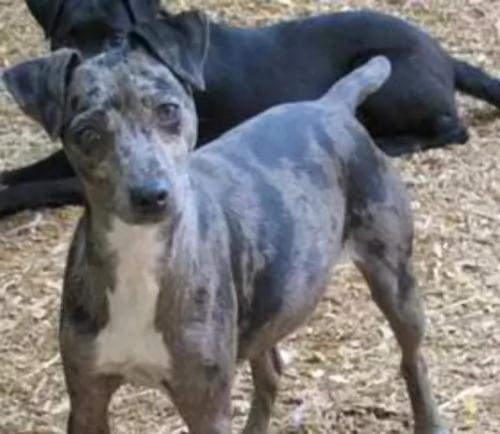 As a medium shedder, the Atlas Terrier will require some grooming. Grooming is easy and a brush twice a week with a rubber-bristled brush will remove those loose hairs and give his coat a sheen.
As a medium shedder, the Atlas Terrier will require some grooming. Grooming is easy and a brush twice a week with a rubber-bristled brush will remove those loose hairs and give his coat a sheen.
Always make sure you’re feeding your tiny puppy the right quantities of a food type. Always feed your puppy food which is appropriate to his age. Your 8 week old puppy will require 4 meals a day. A highly active breed such as the Atlas Terrier will require more protein for energy.
Speak to your veterinarian about the perfect diet for your puppy and about wet- or dry foods. There is the choice of feeding your puppy commercial dog food or your own home-prepared meals, but then you want to be sure that your puppy is getting the right balance of minerals and vitamins.
Once your Atlas Terrier is about a year of age, he can go onto one meal a day or a lighter meal in the morning and the evening. Remember to ensure that there is always clean, cool water available for your puppy.
 Your Maltese is going to require quality food, water, exercise and shelter to enjoy a good life. The type of food you feed any dog has a direct impact on his health.
Your Maltese is going to require quality food, water, exercise and shelter to enjoy a good life. The type of food you feed any dog has a direct impact on his health.
You need to provide him with quality food, and if its commercially manufactured food, you need to read the labels carefully so that the food is appropriate to your Maltese. For instance, you can’t mistakenly pull a ‘large-breed’ packet of food off the shelves and expect your Maltese to be able to stomach it.
If you do buy him this kibble, make sure the ingredients are wholesome. To break the monotony of eating kibble every day, give him some boiled chicken, brown rice and some raw or cooked vegetables chopped up finely into his kibble. He will love you for this as it makes a tasty meal for him and will keep him healthy.
Try to keep his diet nice and simple to avoid digestive problems.
Make sure he has constant access to fresh, cool water.
Make sure your Maltese dog has a nice warm, dry place to sleep.
Get him to the vet if you notice that he is ill.
Brush his hair twice a week and take him to have it professionally cut if you prefer.
Clip his nails when they become too long and check around his eyes and inside his ears for any kind of infection.
These little dogs are prone to dental problems and he will need to have his teeth brushed 2 or 3 times a week.